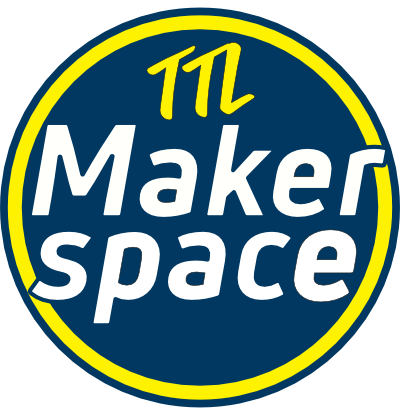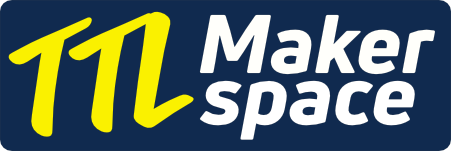Contact: support@ttlmakerspace.com
A little over a year ago, TTLMakerspace opened up registration on a series of training programs for modern digital fabrication. These included programs in CNC milling, Laser cutting, and 3D Printing.
These courses have been very popular! In a year of operating them, hundreds of people have signed up for six-week courses. What is not so obvious is the role that open-source software has had in making all of this possible.
To begin with, all of our computers are PCs running on Linux operating system (specifically Ubuntu). With that baseline in place, we use a few specific open-source solutions in all of our training programs – namely FreeCAD, Inkscape, CNCJS, and a variety of others.
This open-source approach has solved a number of problems for TTLMakerspace.
Linux Runs Awesome
Linux of today is not like the desktop experience of years ago. I’ve been using linux a long time on the server where it dominates, but did not see myself using it as a daily driver on the desktop until about four years ago. At that time I rescued an aging laptop that could not keep up with Windows changes. Installing Linux on it, the hardware suddenly ran like new, and still runs to this very day.
Many of the problems associated with Linux simply aren’t a problem any more, and the advantages are many. For one, Linux does not push ads at users the way other operating systems tend to do. Neither does Linux require people to have a user account, or to log in online. This is essential for a small organisation.
Digital Fabrication Software
In the field of digital fabrication, it is an unfortunate fact that software is dominated by a few (perhaps only one) platforms that simply do not have options for small organisations, and certainly not for non-profit institutions. Groups like our simply are not of interest to the likes of Autodesk. They do offer a hobbyist option for software like Fusion360 – but this is not applicable toward teaching, which requires a full (very expensive) license. The cost of this license alone would force us to have to increase the price of programs – because these licenses are marketed for large educational organisations, such as universities. So what to do?
FreeCAD is a powerful community-built CAD software with a surprisingly robust set of features. It is, as the name implies, completely free and has proven to be more than powerful enough for our use. Over time, with hundreds of students, we have shown that it provides an excellent introduction to the principles of CAD modelling used in digital fabrication. Moreover it is versatile enough to be used in a wide variety of digital fabrication. Student like the fact that they can start learning in any of our programs, and build on that knowledge by using the same software in any other program.
For example, a lot of people will start by taking Design For Lasers, in which they will concentrate on the vector drawing features of the Sketcher workbench, and prep their designs for laser in Draft workbench. From there they could easily move on to CNC Milling and learn about the Path workbench for making machine paths, or branch into 3DPrint and explore the features of the Mesh workbench for preparing and printing 3D models.
Unlike a traditional University, we are not restricted to choices that would be considered “industry standard” – our members are coming for personal development, to be creative and to make their visions a reality. If a software works for this purpose it is good for us.
Working with open-source software allowed us to save significant expense on hardware, and enabled us to launch a comprehensive curriculum where all the courses are nicely complementary to each other. The end result is an experience that is very well-rounded and allows people to explore all the facets of being a maker – at a very low cost.


